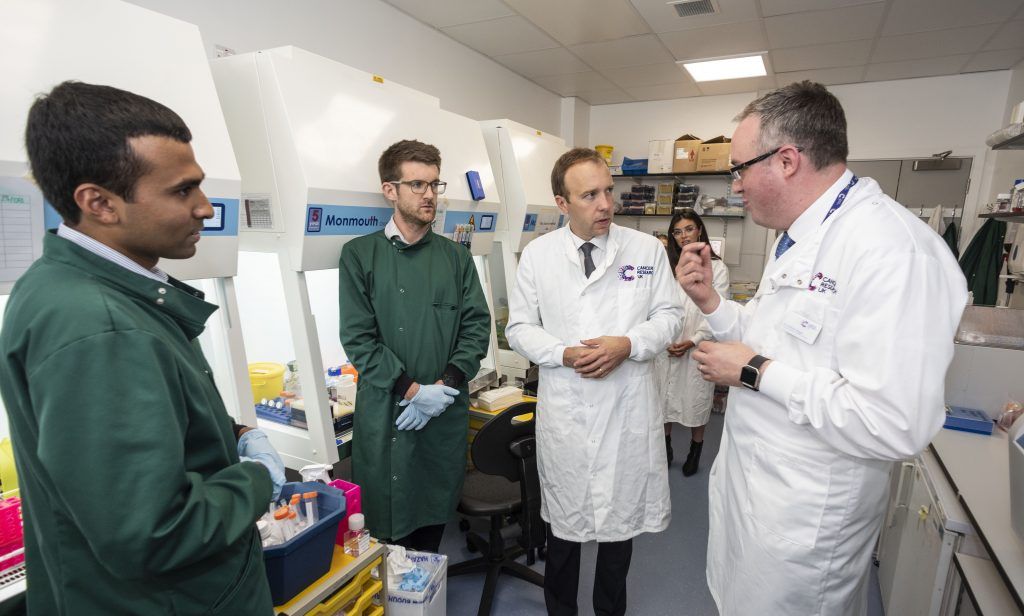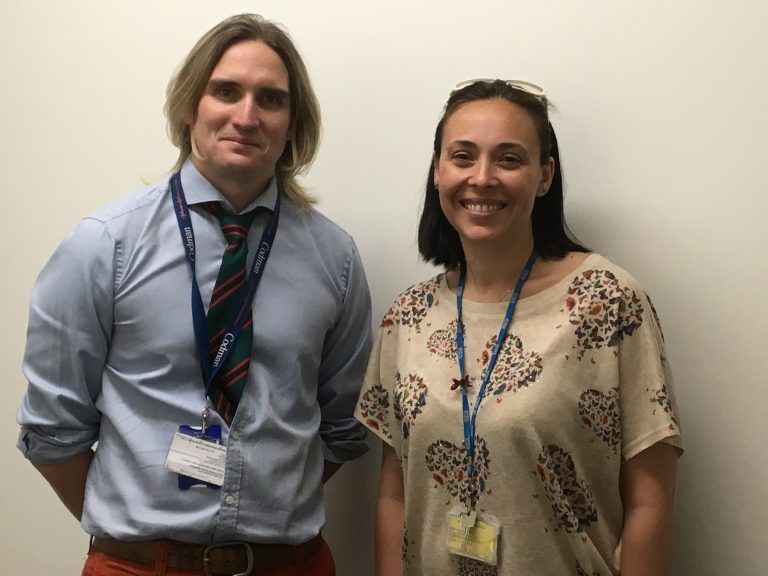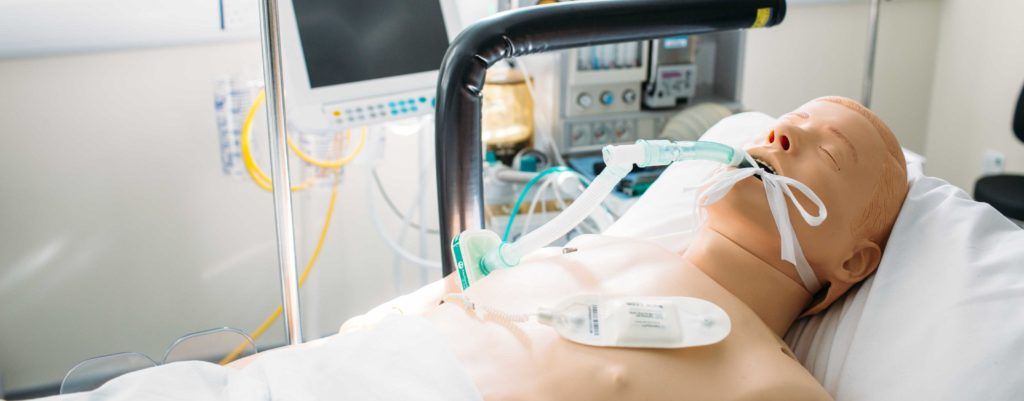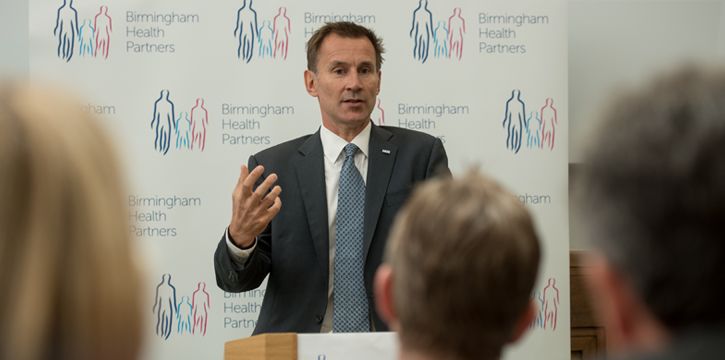Transformative for patients: Health & Social Care Secretary visits Birmingham Health Partners at the ITM
MATT Hancock, Secretary of State for Health and Social Care, met Cancer Research UK-funded scientists at the Institute of Translational Medicine on Thursday, 23 August to learn about their life-saving work.
The minister saw first-hand the pioneering research taking place at the Cancer Research UK Centre, particularly in the fields of bowel and lung cancer.
During the visit, Mr Hancock was given a tour of the labs with Dr Andrew Beggs who is heading a £1.5 million research programme aimed at finding new treatments for bowel cancer.
The pioneering research, the first of its kind in the UK, involves scientists taking samples of 200 patients in order to grow bowel cancer avatars – or mini tumours – in the laboratory. The avatars are then exposed to over 2,000 drugs and treatments, some of which have never been previously tested.
Mr Hancock also met researchers at the Cancer Research UK Clinical Trials Unit who are investigating a wide range of cancers, including breast, skin, blood cancers and head and neck cancers.
And he visited the Children’s Cancer Trials Team at the University which co-ordinates ground breaking clinical trials at centres around the country, making innovative new treatments available to children with cancer.
Mr Hancock said: “I have been hugely impressed by the incredible work to revolutionise cancer treatment, driven by the partnership between academics, business, charities and the NHS.
“The collaboration between Cancer Research UK and Birmingham Health Partners demonstrates the critical importance of a shared scientific approach. It promises to be transformative for patients.”
Emma Greenwood, Director of Policy and Public Affairs at Cancer Research UK, said she was delighted to have the support of Mr Hancock in highlighting the work of the centre.
She said: “With the NHS plan for the next decade soon to be published, it’s encouraging to see the new Health Secretary visiting today and standing shoulder to shoulder with the NHS workforce.
“For the 85 people diagnosed with cancer every day in the West Midlands, early diagnosis and treatment staff are vital to tackle their cancers sooner and more effectively.
“To face the challenge of a growing and ageing population and achieve outcomes that are amongst best in world for patients, we need fantastic research centres like this one paired with a cancer workforce that’s fit for the future.”
Last year, Cancer Research UK spent over £9 million on pioneering research in the region.
Professor David Adams, Pro-Vice-Chancellor, Head of College of Medical and Dental Sciences and Dean of Medicine, Professor of Hepatology and Director of NIHR Birmingham Biomedical Research Centre at the University of Birmingham said: “With our Cancer Research-UK and NHS partners, we are leading some of the most advanced work across the globe to develop and test new cancer treatments, with the ultimate goal of improving survival rates.
“The Secretary of State’s signalled commitment to continue the Government’s support in this crucial research area is welcome. We will continue to build on recent advances in genetics and precision medicine to deliver cutting edge clinical trials that lead to the successful treatment of a range of cancers.”




